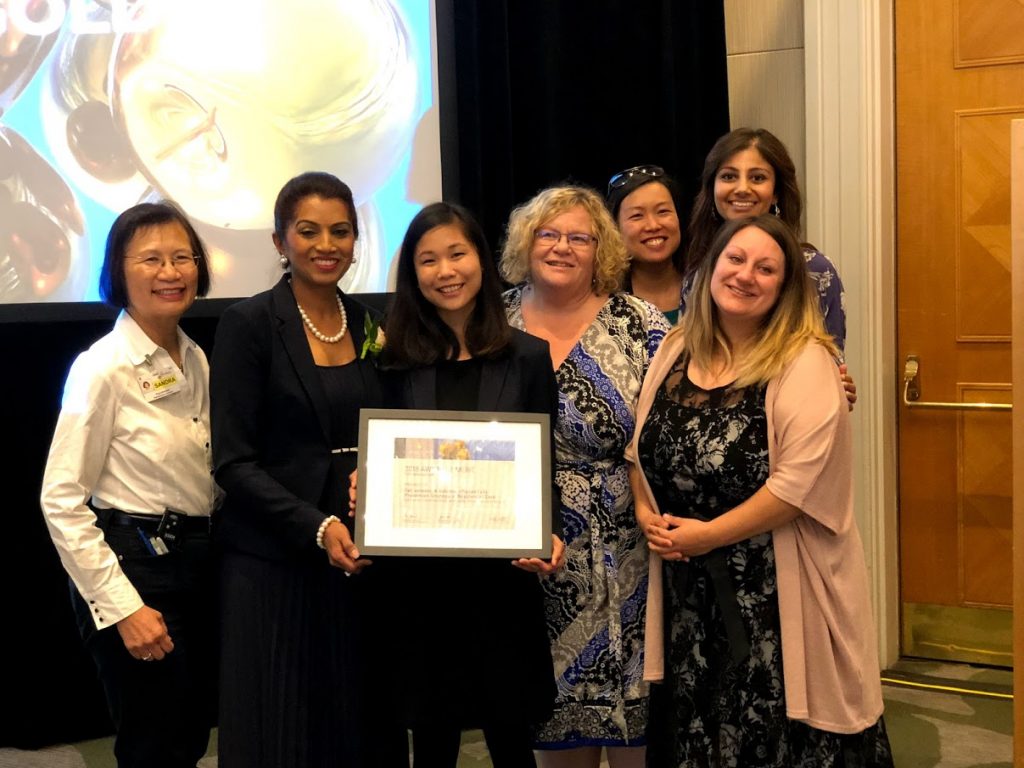- 2019
|
- Runner-Up
|
- Strengthening Health & Wellness
This award was formally named “Staying Healthy”. Our Excellence in Quality category names changed in 2020 to reflect the updates to our BC Health Quality Matrix. Visit our Categories and Criteria page to find out more.
The Fall-unteer program is a volunteer-based falls prevention strategy started by the long-term care team at Providence Health Care’s Holy Family Hospital (HFH), after falls were identified as the most common adverse event at HFH. Falls are about three times more common among people living in care homes rather than independently, due to factors like the unfamiliar environment, or side effects of their illnesses or their medications. Fall injuries increase the cost and length of hospital stays, and one fall can begin a downward spiral of reduced mobility and risk of further falls.

In 2016, HFH tested the use of non-medically-trained volunteers as added supervision to reduce falls in long-term care between 4:00 and 8:00 p.m., a time where staff-to-resident ratio is reduced and there are fewer activities to keep people supervised and engaged. All 142 people living at HFH are considered at risk of falling. Volunteers check on each person to make sure common safety measures are in place. For example, they’ll check that wheelchair brakes are on, personal belongings and a call bell are within reach, and restless people are engaged.
In the first year of the program, HFH observed approximately 60% fewer falls during evening hours in areas where Fall-unteers were working, compared to the previous year. Due to its success, the program has been expanded from four to seven days a week and an additional 5:00 – 7:00 p.m. shift has been created.
Beyond reducing falls, the Fall-unteer program also increases quality of life by creating more opportunities for social interaction. Fall-unteers are encouraged to join residents during meals on their shifts, and they are trained with ways to engage residents in conversation. Fall-unteers note the deeply rewarding relationships they have made, befriending residents and learning their personal stories, and families notice their loved ones are more engaged when they visit. Since the test phase of the Fall-unteers program, the percentage of interactions where Fall-unteers engage residents in conversation has increased from 19.6% to 99.2%.
With its commitment to both physical safety and emotional enrichment, the program’s nominators say that “the Fall-unteer project is an embodiment of the vision for long-term care in the future.”

